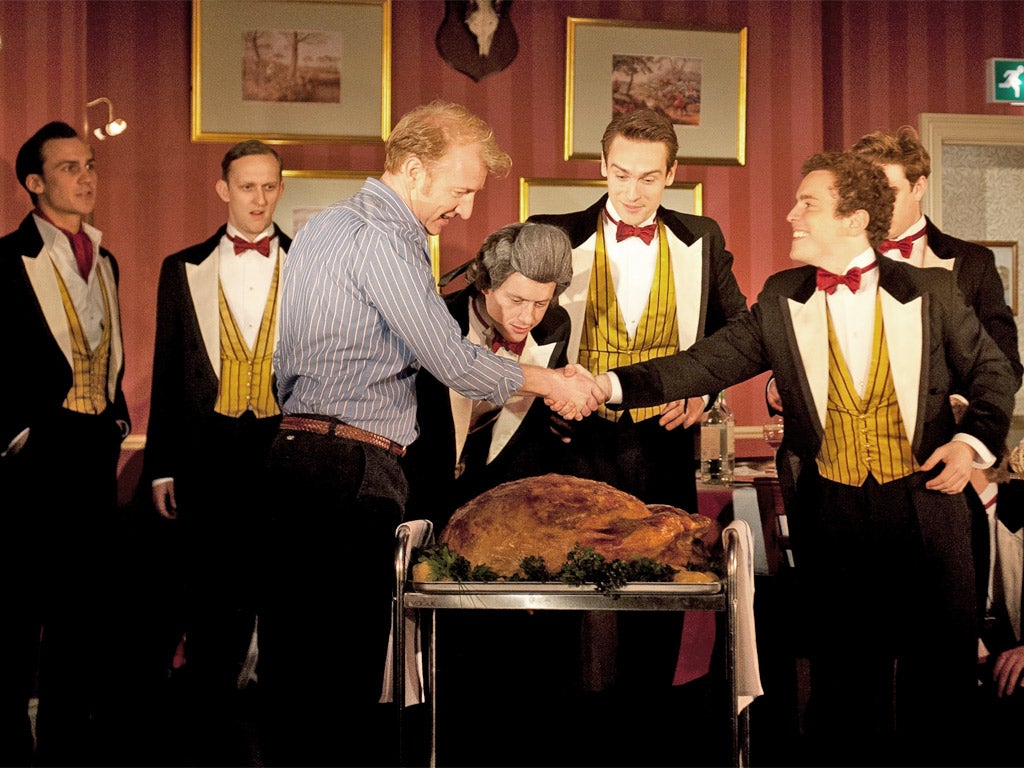The middle class bias at the heart of our education system is devastating
The UK university system is not the meritocracy it purports to be, Harriet Williamson believes

Your support helps us to tell the story
From reproductive rights to climate change to Big Tech, The Independent is on the ground when the story is developing. Whether it's investigating the financials of Elon Musk's pro-Trump PAC or producing our latest documentary, 'The A Word', which shines a light on the American women fighting for reproductive rights, we know how important it is to parse out the facts from the messaging.
At such a critical moment in US history, we need reporters on the ground. Your donation allows us to keep sending journalists to speak to both sides of the story.
The Independent is trusted by Americans across the entire political spectrum. And unlike many other quality news outlets, we choose not to lock Americans out of our reporting and analysis with paywalls. We believe quality journalism should be available to everyone, paid for by those who can afford it.
Your support makes all the difference.With another year’s A-level results received and university places accepted, the idea that higher education is meant for all bright pupils, not simply those who can afford it, should not be a contentious one.
However, Professor Les Ebon, head of the Office of Fair Access, suggests that the undeniable middle class bias in higher education is partly due to it being in the financial interest of universities to take on more students from middle class backgrounds, because they have parents able to support them if they fall into financial difficulties and are therefore less likely to drop out. To me, this seems a potent illustration of the inequalities present in our education system and yet another disheartening obstruction to the educational attainment of pupils from less affluent backgrounds.
It is no secret that students who have attended schools in more deprived areas or who come from families without a tradition of higher education are at a disadvantage before they set foot upon a university campus. The number of students achieving As and A*s fell slightly this year from 26.6 per cent to 26.3 per cent but the proportion gaining top grades has been similarly high in recent years, suggesting that A-level students must differentiate themselves in other ways when applying for competitive university places.
The extra accomplishments that allow candidates to distinguish themselves tend to be the privilege of more middle class students. If you come from a middle class family, your parents are more likely to be able to afford music lessons or private tuition. If you go to a private or grammar school, or a high-performing comprehensive in a middle class area, that school is more likely to be rich in resources and able to provide students with sporting opportunities and other extracurricular activities.
Schools with a tradition of sending pupils to top universities will also be in the habit of offering greater support in the form of interview preparation and information about the kind of subject choices favoured by leading institutions. In 2010-11, a third of pupils from private schools went on to top universities and 2010 findings by the Sutton Trust indicate that private school pupils are 55 times more likely to go to Oxbridge than their state school counterparts. I refuse to believe that it is because students from poorly-performing comprehensive schools or cash-strapped backgrounds are ‘not as clever’. This is a case of financial segregation, occurring long before personal statements are penned.
The current government’s reforms will leave today’s graduates paying off around a crippling £60,000 in debts. With figures suggesting that one in 10 graduates are jobless six months after leaving university and there are four per cent fewer graduate jobs this year than in 2012, it is not as though employment is guaranteed for those with an increasingly expensive degree. These factors alone can discourage those from families in less financially advantageous positions from choosing a university education, despite being bright and able. Owen Jones, author of Chavs, goes on to describe the advantages middle class graduates gain from their parents’ networks and contacts and how it is these graduates who can afford to work as unpaid interns when attempting to break into fields including journalism and politics.
Chancellor George Osborne has this year cut 10 per cent from the student opportunity fund as part of his financial onslaught against the higher education sector, and this is simply not acceptable. This fund allows universities to meet some of the costs of attracting more students from diverse backgrounds, including what is spent on outreach programmes, and must be protected.
The idea of Britain being a meritocracy where those who work hard are rewarded is questionable at best, as we all start from different places and under different circumstances. However, it is further undermined by the hike in tuition fees, universities’ view of middle class students as a ‘safer bet’ and the subsequent bias against those from poorer backgrounds. Higher education should be available for every intelligent and aspirational student and I firmly believe that crude financial divisions should not prevent this from becoming a reality.
Join our commenting forum
Join thought-provoking conversations, follow other Independent readers and see their replies
Comments